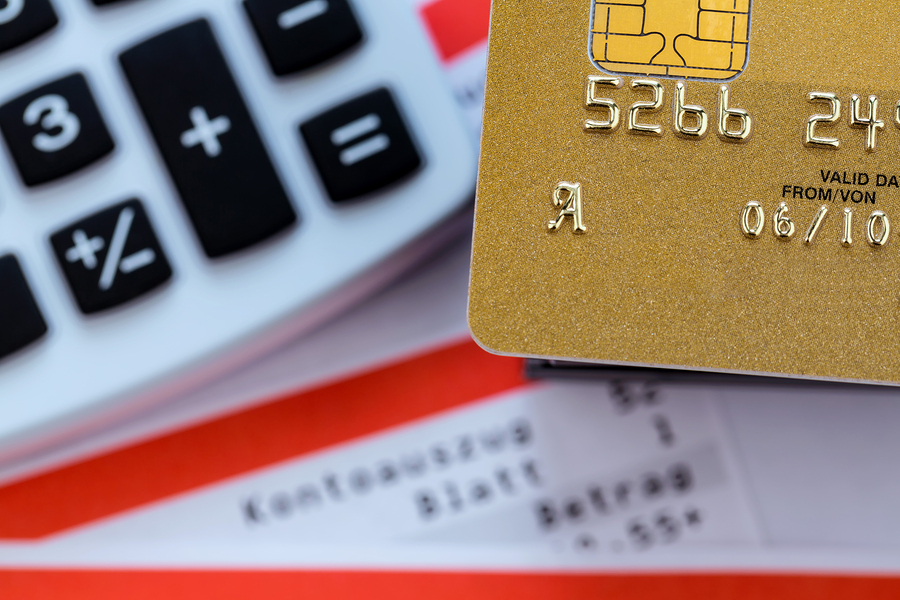Does Canceling a Credit Card Negatively Affect Your Credit Score?

One of the most frequently asked questions we get when it comes to personal finance is: should I cancel my credit card? Should you keep your credit card account open, and use all your willpower to refrain from charging expenses to it? Or is it better to simply cancel an unused card?
The answer varies under different circumstances. Depending on what your financial goals are, what your credit history and credit score might be, and how you tend to spend your money, there are upsides and downsides to both canceling your card and keeping your account open. This is the problem: canceling a credit card does not come without consequences. Canceling will definitely have an impact on your credit score, as well as on other parts of your financial future.
There are numerous reasons why you might want to cancel an existing credit card. It might be because you’re trying to reduce the number of cards you have active. Maybe you’re trying to use up less credit, or maybe you want to find a credit card that’s more beneficial for your finances in the long run. No matter what your reasons might be, take a look at the section below.
Look Into Your Credit History, and How Long You’ve Had Your Accounts
As you use your credit card, you’ll be building your credit history along the way. All of your activity is recorded on your credit report. This includes any and all expenses, payments and even errors that might have occurred.
Check out this article on how to read your credit report.
Maintaining a proper credit history is crucial as it gives credit companies and potential lenders the information needed to monitor your credit patterns. It’s also used to determine what your credit score is.
Before you think about canceling a credit card, it’s important to find out if it will damage your credit history and credit score. If you’re sure about your decision to cancel one or multiple cards, make sure to start with the most recent ones. It’s always better to keep using the cards that you’ve had active for the most amount of time. Typically, a canceled credit card account will remain on your credit report for up to 10 years. So, while canceling the oldest credit card will not necessarily damage your credit score immediately, 10 years down the line, when that card doesn’t show up in your credit history anymore, you might end up regretting it. Considering the account could have been in existence for more than 10 years, it might have been better not to cancel it at all.
Remember, building a solid credit history is a process that can take years, but will benefit you in the future. We know that 10 years feels like a significant amount of time and that a credit card you canceled way back then might not seem like it matters. However, you definitely need to consider the distant future when your credit is involved.
For more information on how your FICO credit score is calculated, click here.
Credit Card Fees and Accumulated Points
Are you canceling your credit card because of a pesky yearly fee? Are you using the reward points that you’ve been collecting with purchases? These are things you need to ask yourself when you’re trying to decide whether or not you should cancel your credit card. Even if the points you’ve earned seem worth the hassle, maybe the expensive yearly fee is not.
If, after all that, you have decided to cancel a credit card with reward points, make sure to get information on what will happen to them once you’ve canceled your card. If canceling a credit card means throwing away all the points you’ve collected, it might not be worth canceling it, at least until you’re able to use up the majority of your points.
Calculating Your Credit Utilization Ratio
If you’re about to cancel one or multiple credit cards, making sure to take your credit utilization ratio into account, is the most important thing to consider, as it will definitely affect your credit score. A “credit utilization ratio” means the amount of credit available for you to use, weighed against the amount of credit that you’re really using. It can be calculated by dividing the present balances on your credit cards with the credit limit on those cards. As a general rule, your credit utilization ratio should be kept at 30% or less.
We’ll give you an example: let’s say, for the sake of argument, that you have 3 active credit cards in your name. Each card has a limit of $5,000, putting your full credit limit at $15,000. You have a balance of $4000, spread out over all 3 cards. When you divide that $4,000 balance, by the $15,000 total limit, your credit utilization ratio will equal approximately 26%. However, if you decide to cancel one of your credit cards, your available credit limit would drop down to $10,000, driving your credit utilization ratio up to 40% and potentially damaging your credit health.
“Credit utilization” means the full level of debt that you’ve accumulated. This is one of the 5 central elements that will instantly affect how your credit score is calculated. Simply put, your credit score will be affected more negatively, the higher your credit utilization ratio gets. On top of this, when prospective credit lenders see that your utilization ratio is too high, they might come to the conclusion that you have a debt problem, and decide not to approve you.
All of these factors need to be taken into consideration before you decide to cancel one or more credit cards. This is especially true if you’re thinking of applying for a mortgage, or any other type of loan for that matter. An unfavorable credit score, coupled with a bad credit utilization ratio could possibly stop you from being approved for a loan.
The Balance On Your Credit Card(s)
While knowing about your credit card’s balance is not as essential as knowing about your credit utilization ratio, it’s definitely something that you need to take into account. If you’re thinking about canceling one or more credit cards, it’s important to make sure that you pay off whatever balance it has beforehand. Any credit card company will allow you to cancel your card even if it still has a balance on it, so make sure you check properly. If you forget to pay a balance or any interest charges for that matter, it could have serious consequences that will negatively affect your credit history and score.
Determining Your Best Option
While maintaining a good credit score is essential, it’s not as essential as getting your finances under control and taking the steps needed to make yourself debt-free. If you have too many active credit card accounts, and it’s having a negative impact on your life and how much debt you have, we think that it’s better to deal with your debt before you deal with your credit score. However, if you’re considering a mortgage or loan sometime in the near future, we suggest you take everything into consideration when it comes to your finances.
If you’re interested in repairing your credit, take a look at this article.



